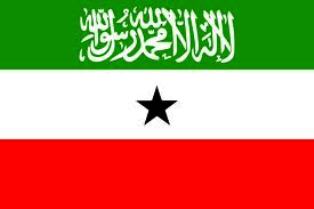Absence of a National Seed Policy
The seed sector in Somaliland is unregulated and uncontrolled. The absence of the national seed policy to guide the development of the sector restricts the implementation of structured development of the seed sector. Consequently farmers’ access to high quality seed of improved varieties is negatively impacted. In addition the absence of a legal framework upon which the seed sector activities can be controlled and regulated also poses a major challenge to a structured development of the industry. The formulation of the national seed policy provides an opportunity for the government to provide a roadmap for the development of the Somaliland seed sector.
Limited Capacity in Seed Sector Research and Development
There is very limited technical institutional and human resource capacity to conduct seed sector research and development. The Public agricultural research centers do not have adequate equipment, infrastructure and scientists to enable them initiate and maintain plant breeding and related research programs that can produce seeds of elite varieties. Research and development also needs institutional coordination to ensure activities produce desired goals. Harmonization of the seed policy framework with regional and international seed sector policies will improve collaboration and partnerships with regional and international research organizations. The improved partnerships can contribute to increased exchange of knowledge as well as resources needed in seed sector research.
Absence of a predictable and well- coordinated resource mobilization strategy to improve funding of research and development poses a major challenge for production of high yielding varieties. Presently national budgets allocate limited resources for seed sector research and development. Collaboration with regional and international research organizations is limited by absence of a national seed policy. Deliberate and structured training for research scientists to meet the needs of each of the seed subsector human resource needs is currently very limited. There is also inadequate capacity to test and adapt introduced varieties. Research and development of other aspects of seed sector research such as variety maintenance, and multiplication of breeder, basic and pre-basic seeds that suit different seed systems also need strengthening.
Inadequate Availability of Certified Seeds
Limited capacity and availability of infrastructure that supports production and or introduction of breeder, basic and pre-basic seeds impacts availability of certified seeds. In addition absence of commercial investment in seed production and distribution, absence of marketing infrastructure, and delivery mechanisms to farmers impacts production of certified seeds. Farmers lack awareness of the benefits of using improved high quality seeds. They also lack adequate resources to purchase seeds even when they know the benefits. The development of the formal seed sector with adequate capacity to produce certified seeds is needed to stimulate production.
Uncontrolled and unregulated Importation and Distribution of Seeds of Unknown Quality and Genetic Potential
Lack of a regulatory framework to control seed importation and distribution limits farmers’ access to high quality seeds from international and regional seed markets. This has forced the farmers to rely and depend mostly on their own saved seeds and seed purchases from grain markets. The quality of the farmer saved seeds and grains sold as seeds are largely unknown. Frequent droughts and other environmental hazards lead to crop failures and shortage of planting materials. Humanitarian organizations procure and import agricultural inputs to assist vulnerable farmers.
Due to limited capacity to inspect and test the imports, most of seed assistance is of unknown quality. Private commercial agro-dealer businesses often import seed from neighboring countries. Horticultural seeds especially vegetables are brought in through this process. Due to lack of a regulatory framework, the suitability of these seeds to Somali conditions and their quality is largely unknown. Through importation by local seed and grain traders, small scale agro-dealer businesses and illegal cross border exchange of germplasm, unknown planting materials have found their way into the country. They have been introduced, domesticated and used as sources of seed. This approach has contributed to unknown and mostly deleterious impact on seed quality. Some of the introduced poor varieties may cross with local landraces and contribute to significant retrogression of existing gene pools
Inadequate Human Resource Capacity in Seed Sector Development
There is limited plant and seed science expertise in Somaliland. Local universities should establish plant science departments with strong seed sector units to train seed scientists. Building in country seed science capacity will ensure that investment in the public and private seed sectors are professionally managed.
Limited Capacity for Effective Certification and Inspection Services
The formal seed sector is not yet fully established in Somaliland. There is no institution mandated to manage the seed sector in Somaliland. The framework for management of formal seed production and regulation of seed imports have not been established. There are no systems for testing and releasing of new plant varieties. Infrastructure and utilities, including seed testing laboratories, field inspection protocols, field accreditation protocols, accreditation by International Seed Testing Association (ISTA) are still not in place. Lack of institutional, technical and human resource capacity and absence of Quality Management System (QMS) disqualifies the country from getting ISTA accreditation. Significant efforts must be put in place to progressively develop adequate capacity for seed certification and inspection to encourage production and inspection of seeds to improve farmers’ access to high quality seeds.
A regulatory frame work should be put in place and adopted to allow for accreditation of private seed companies, to perform some of the functions in the seed certification process. Government and partners should urgently provide resources to put in place all aspects of the regulatory framework and initiate legal instruments for the protection of landraces.
Absence of Legal Framework for Protection of Local Community Intellectual Property Rights
There is no existing legal framework for the protection of local community intellectual property rights over traditional varieties and landraces that they have domesticated, bred selected and conserved over the years under the SWAKOMPUND (2010) protocol for the protection of local knowledge and the Nagoya protocol on access and benefit sharing of the convention of biological diversity.
Absence of Institutional Framework to Effectively Manage the Seed Sector
As currently constituted the Ministry of agriculture does not have an institution that is designated to manage and coordinate the functions of the seed sector. To effectively coordinate the functions of the seed sector an autonomous or semi-autonomous agency or authority should be established. The functions, roles and responsibilities of the organization defined and adequate human resource and infrastructure put in place to enable the institution implement its mandated responsibilities.
Limited Capacity in Climate Change Adaptation, Mitigation and Response
Adapting the agricultural system to climate change requires a good understanding of its impact on the environment and agriculture in order to develop appropriate responses. Most often very erratic rainfall, frequent droughts, unusually heavy flooding, high temperatures and humidity have been recently associated with climate change. Plant breeders should develop appropriate well adapted varieties that respond to these environmental changes. Thus climate smart varieties should be developed to adapt agricultural production to climate change.
Opportunities
Untapped opportunities still exist in the seed sector that can be exploited to improve agricultural production and productivity. The sector is still very under developed therefore most of low lying fruits are yet to be picked. Among the existing opportunities are the existence of crop land-races with potential for improvement, national government commitment to improve the agricultural sector, goodwill from international partners to support the development of the agricultural sector and the inherent business culture in the Somaliland community. Development of the industry could benefit by taking advantage of these opportunities to fast track the establishment of a strong and functional seed sector to increase farmers’ access to high quality seeds within the shortest possible time
Availability of Untapped Genetic Potential in Local Land-races
Most crops grown in Somaliland are local land-races with little known genetic potential. Within the land races especially of the local cereals and leguminous crops, little research has been done to identify accessions that are most well adapted and high yielding. Strengthening of the existing agricultural research and development and in particular plant breeding programs to identify and select well adapted high yielding varieties from available land races can increase agricultural production and productivity significantly. The program could also improve the nutritional quality and consumer preference of the new varieties.
Availability of Untapped Markets from Rapidly Growing Population
About 87% of cereals used in Somaliland are imported from neighboring countries. Adding value to locally produced grains would open new markets especially among the urban communities who currently heavily rely on wheat and rice based foods for their cereal needs. Value addition and increased demand for local products will create incentives for research to develop new varieties suitable for the new niche markets. It will also increase demand for seeds since cereal production will become more profitable. Currently out of 350,000 ha of suitable arable land for cereal production, only 35,000 ha or 10% is under crop. By improving market access more land can be put under crop and productivity per unit area of land significantly improved.
Commitment to Improve the Performance of the Agricultural Sector
According to national policy and development strategy documents reviewed, the Somaliland government places a lot of premium and priority in the development of the agricultural sector as a strategy to improve rural livelihoods, incomes and employment. To actualize this strategy, the seed industry must be improved to in order to increase the supply of high quality seeds to farming households.
Presence of a Business Culture among the People of Somaliland
A well- coordinated, regulated and controlled seed sector provides opportunities for private sector investment in the seed industry. There is a strong business culture among the people of Somaliland that will enable a strong private seed business to thrive.
Justification of the National Seed Policy
The Development of the Seed sector policy shall provide clarity towards efficient management, research and development of the seed sector. It will also contribute towards harnessing the full potential of the agricultural sector in Somaliland. It will establish the platform for the ministry of agriculture and heads of departments concerned with the seed sectors to establish specific means and processes by which to identify, train and manage institutional reorganization of the directorates concerned with seed systems. It will help with the development of a hybrid seed sector where both the informal and formal seed systems thrive side by side. This will encourage the private sector participation in the seed business and improve sustainable production and marketing of seeds. It will also support the development of the informal community based seed systems with capacity to supply high quality public seeds to farmers.
Abdirahman Ibrahim Abdilahi
Abdirahman270@gmail.com
























